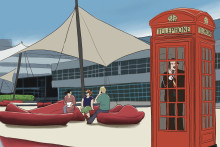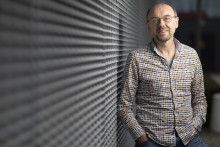It’s election time, so as is natural, everyone is attempting to sell you fairy tales, doom scenarios, and usually both. Which applies just as much to the language discussion. Either we get cut off from science, or we’ll be flooded by foreigners and lose our culture and language. Not to be the clichéd third columnist, but there is some nuance to be had.
I think the lack of nuance mostly comes from making the easy, short-sighted arguments; from not actually confronting the hard questions. For example, it’s easy to assert that ‘because internet’ all prospective students have a command of English that approaches or even exceeds their Dutch. But if one wasn’t knee deep in student culture, you might’ve noticed that far from everyone got that lucky. I know Femke is right, because I have seen it happen around me. Not to the extent of keeping them out of higher education per se, but by inducing more friction than these otherwise bright people deserve. They would flourish more, if only they were taught in Dutch.
Another vice of the Dutch is that they tend to oversell their English. They invite internationals to teach and come study here, thinking they can converse on equal footing with native speakers, or at least be serviceable. But at the same time, they have a hard time elegantly transcribing words like, I dunno, ‘warehouse’, or ‘supply chain’. They invite internationals with fairy tales, but when they get to the coffee machine to chat, most would still prefer Dutch, actually. I find it ironic that they would argue in favour of Anglicization in Dutch, while I try to tap the brakes in English.
Not to dunk on my newly minted colleague too much, but the uncritically rehashed arguments consider the endeavour of science in isolation. Yes, the contemporary lingua franca of science is English, but so what? Most of us don’t do the science just because of the science; we do it for the people around us. The mechanics I might meet on the shop floor, the nurses in our hospital wings, our patients, our employers, and our families — those who we have to explain our innovations too — primarily speak Dutch. We are the bridge between the forefront of human knowledge, and our society. I think teaching (partially) in Dutch is part of that. Abandoning Dutch just because the language of science is English risks alienating us from them — and I think we already see that happening. You don’t have to be chauvinistic or xenophobic to want a bit more Dutch — it can also be rooted in empathy.
I think the at this point clichéd arguments for Anglicization point to the stereotypical Dutch economical opportunism. Always chasing the next dime, while never considering what impact it may have elsewhere. Anglicization undeniably causes friction, both in society and at the UT. I think we owe it to our society, our guests, and ourselves to do this well. Ironically, only when we figured this out can we actually be internationally oriented.







